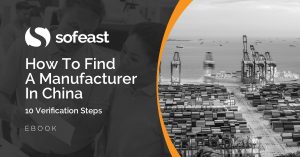 I saw several people mentioning fake certificates recently in the context of Chinese manufacturing. While I know there are many fake product certificates, I don’t think there are many fake ISO 9001 certifications, or those for ISO 14001, or IATF 16949 for that matter.
I saw several people mentioning fake certificates recently in the context of Chinese manufacturing. While I know there are many fake product certificates, I don’t think there are many fake ISO 9001 certifications, or those for ISO 14001, or IATF 16949 for that matter.
My point of view is simple. There are many registrars, and many “consultants” that “guarantee a pass” and that know which registrars are very lax. It means factories simply pay and get the certification. It is not much more difficult than faking it.
The advantage of a “real but undeserved” certificate is that a real registrar’s name can be shown. And potential customers can even call the registrar and ask if that company is certified.
Does it mean that you can visit a factory and then call the registrar to check the certificates’ validity? It is not that simple for two reasons:
- The official company name is in Chinese. And I guess many local registrars won’t have an English speaker respond to your inquiry.
- In China, a factory boss often has several companies and tracking who is who is complicated. The business environment here is opaque.
Rather than checking if a certificate is genuine, I would encourage buyers to check if it is deserved. I listed some points that can easily be checked here. And many companies, including mine (Sofeast), make a living of checking just that. It is not expensive.
—
Do you agree?
—————
Update Feb. 2022: watch this video for advice: 10 tips to identify counterfeit certificates
—————
Are you trying to find a manufacturer in China who is well-suited to your needs and can also deliver on their promises?
Sofeast has developed 10 verification steps to help importers find the right manufacturing partner in China. They’re shared in this FREE eBook: “How To Find A Manufacturer In China: 10 Verification Steps.”
It covers:
- Background checks
- Manufacturing capabilities
- Quality system auditing
- Engineering resources
- Pricing, negotiation, & contracts
- …and much, much more
Just hit the button below to get your copy and put yourself in a great position to get better results from Chinese manufacturers who supply your products:


I agree with the key points of the article. I have seen many factories who proudly displayed certificates… but had numerous systematic problems. It really doesn’t matter whether the cert is a total fake; a bribed cert from a real registrar; or a genuine cert that was issued despite major flaws. In any of these cases the cert is meaningless.
One clue to check– if you see companies changing registrars frequently (every 1 – 2 years) that’s another sign of gaming.
I like to check what I call the “edges”. Look for a few confirming details about extremes. For example, many Chinese factories may have gage calibrations done for selected measurement devices – say, micrometers and calipers. But, ask to see the calibration for a thermocouple in the heat treat oven; or a pressure gage in an injection molding machine. These are often ignored, yet they are the most important measurements in the factory because they control the actual manufacturing process. Many factories will claim that these are not part of the ISO 9000 requirements. Any of the US registrars I have worked with will disagree.
Ask to see the corrective action done for a typical customer quality complaint. I have had a variety of answers on this. Several factories say that they haven’t had any quality complaints. With 30 years experience in QA, I find this unbelievable. If you are listening you will have a few complaints. They may be minor (for example, I am very proud of one particular line of hardware; but, we occasionally have problems with the package seams splitting. )
Others have corrective actions that don’t address a root cause.
Or, ask to see a recent internal audit. Then compare their findings to what you see. If they are giving themselves perfect scores on internal audits, the audits aren’t real (or, at least, they aren’t effective). Nobody is perfect. Internal audits should find some issues, even if only opportunities for improvement.
So, trust, but verify.
Brad
Very accurate !
Trust, but verify. Most factories in China try to get some certs as a bargain leverage, but they don’t really operate as the certs requires.
As for ISO 9001, yes, most of them are bribed certs.
Hank
Thanks Hank… I am not sure bribes are always involved. Many third party auditors working for the registrars also don’t do their work.
Very good points. Good examples. Another example: “please show me the last revision you did and approved on a work instruction”.
yes, and all of those flaws, and general perception of the standard is the consequence of the certification companies, ISO 9001, and in particular the 2015 version is in general excellent system. But I am dissappointed by the IS organization itself for the level of fake certificates. Now, they see the drop of certificates being issued… no one ask you for this standard as reference any more and this all will fail within 10 years from now….